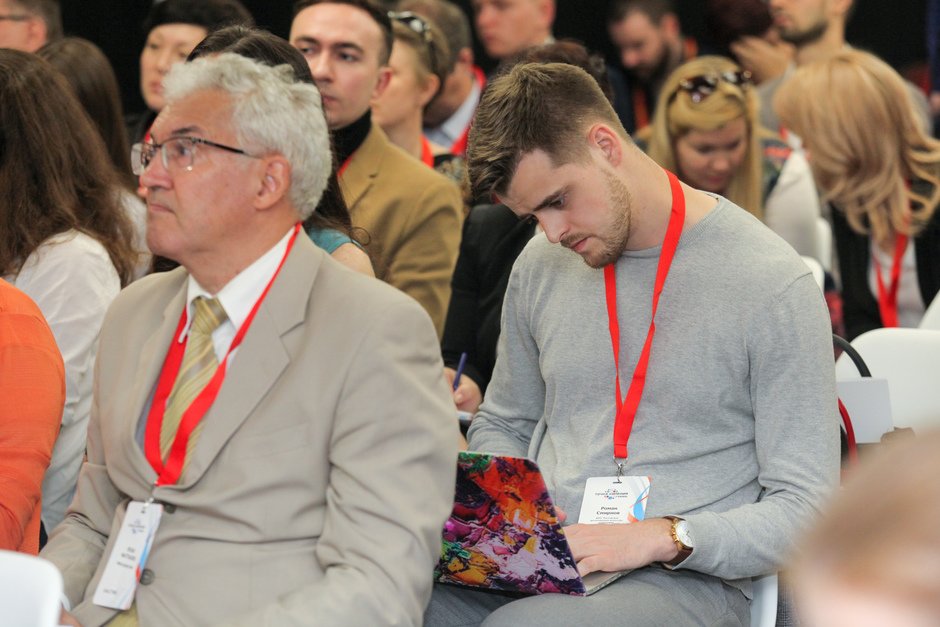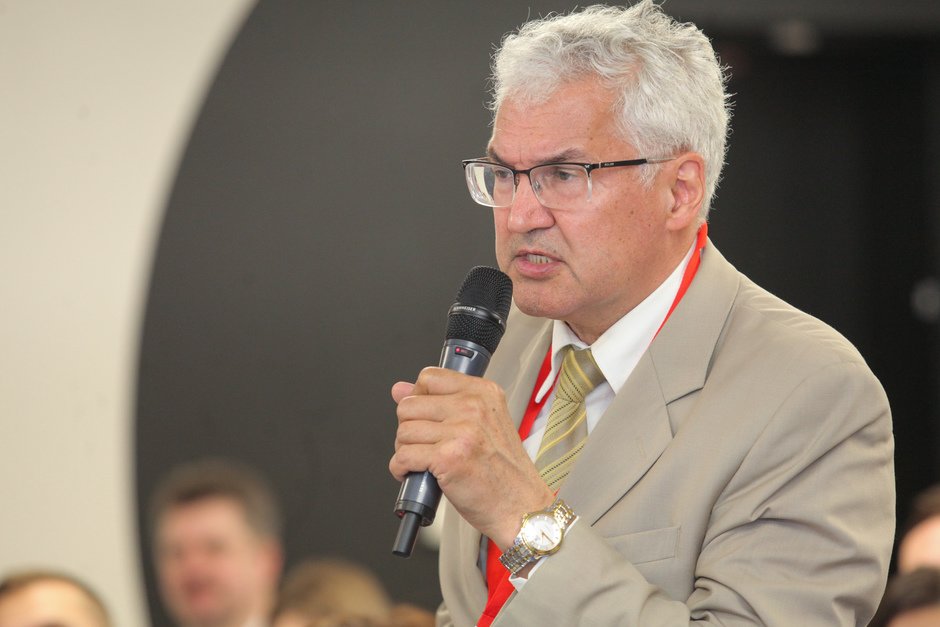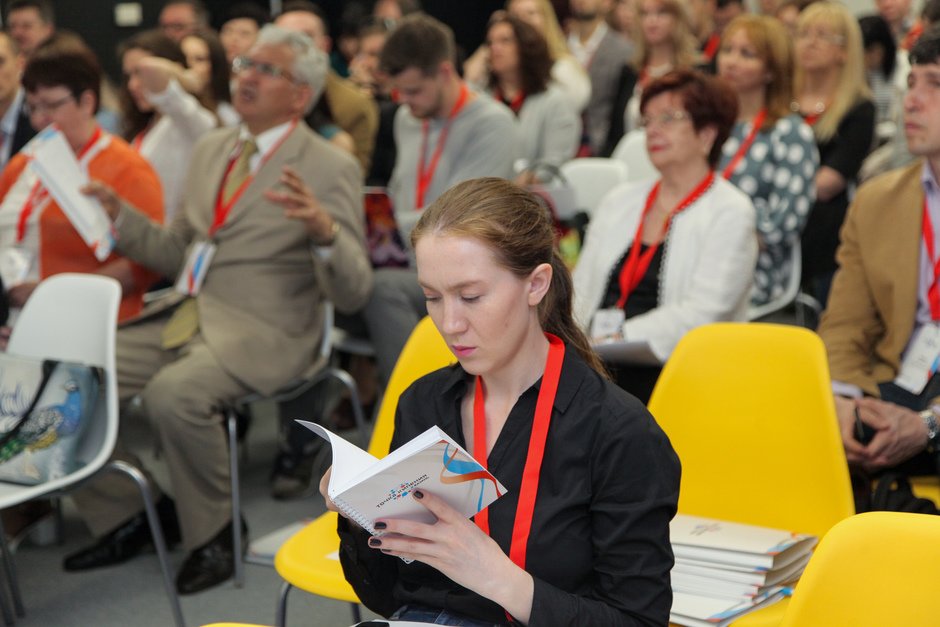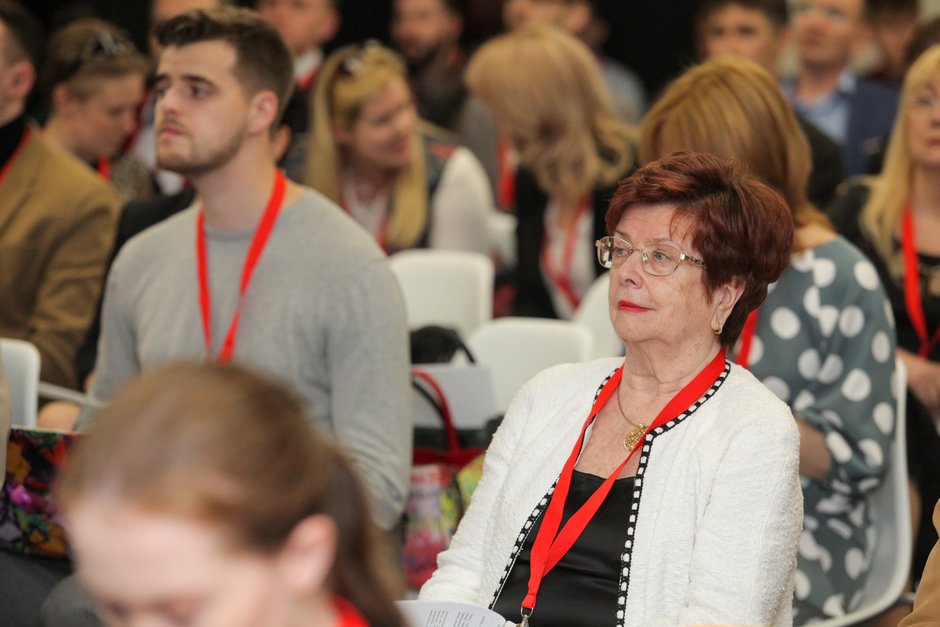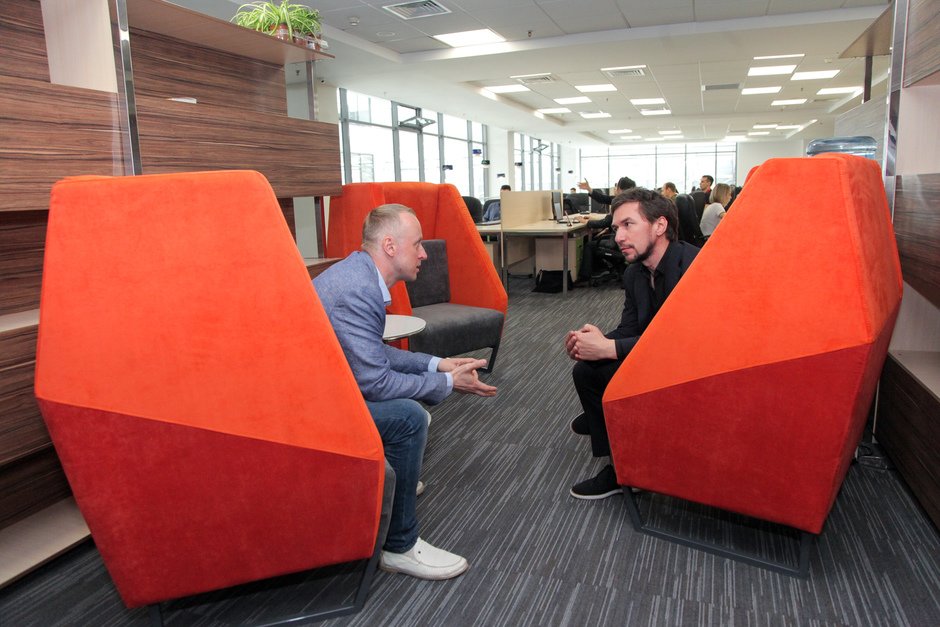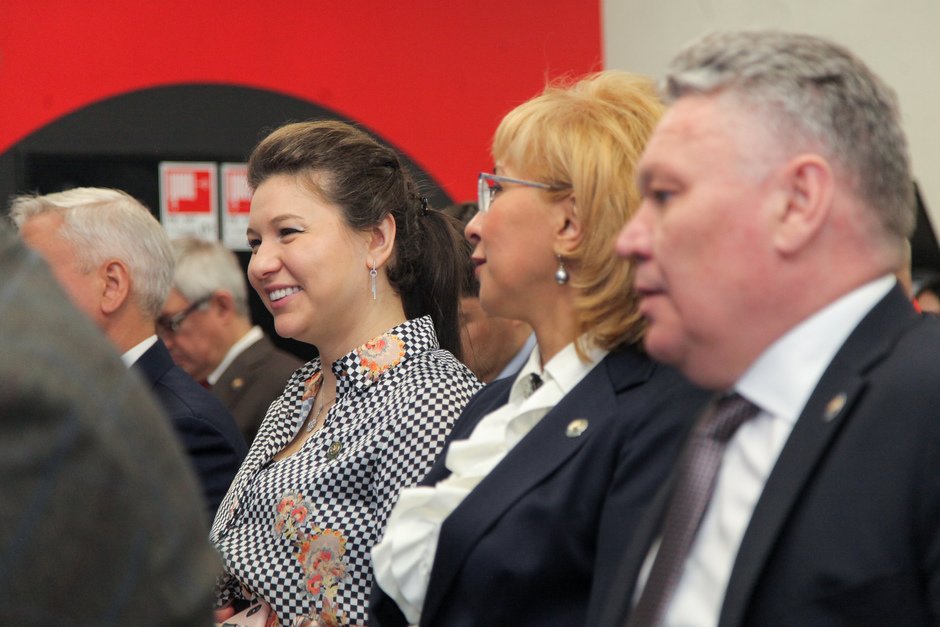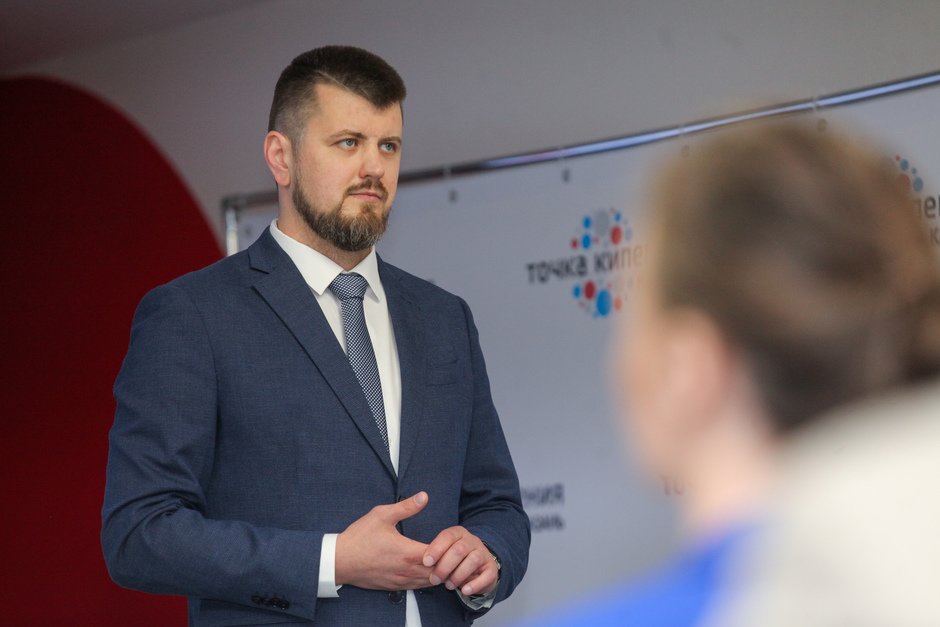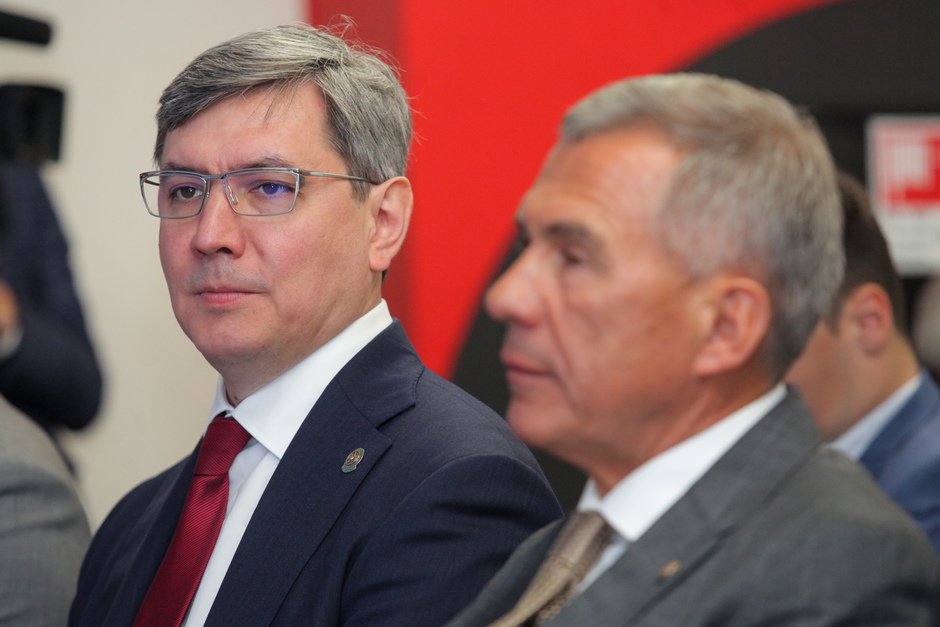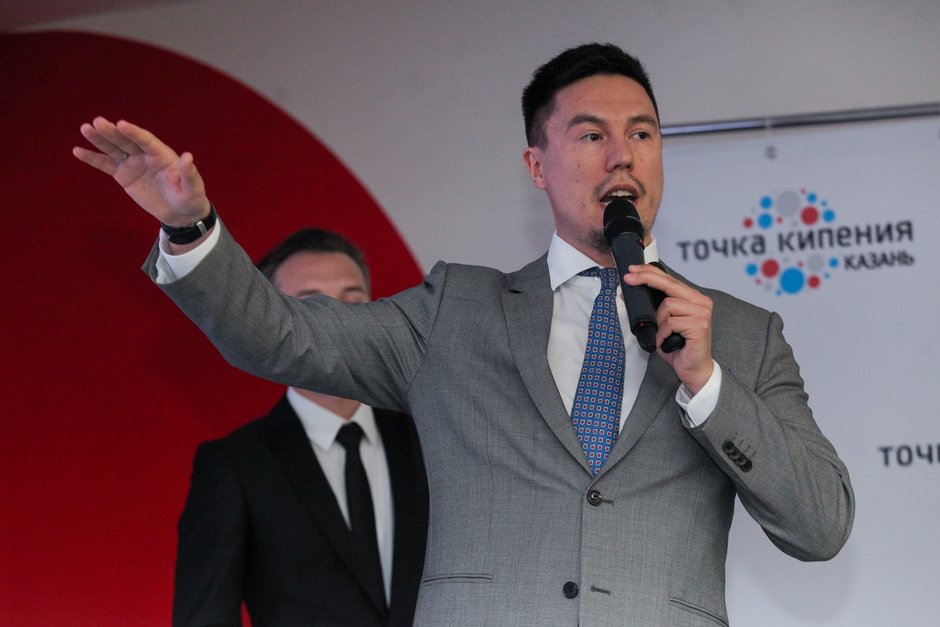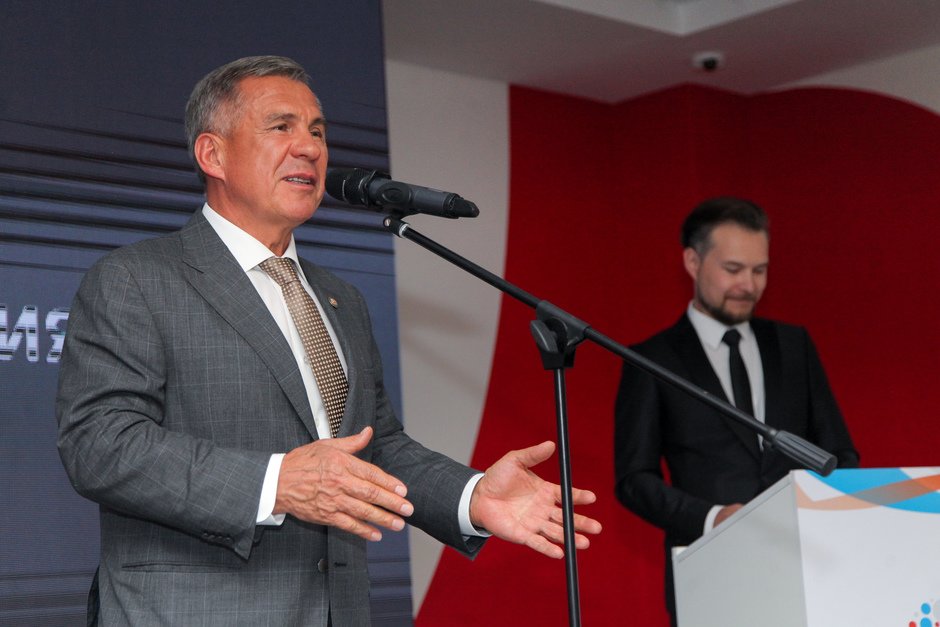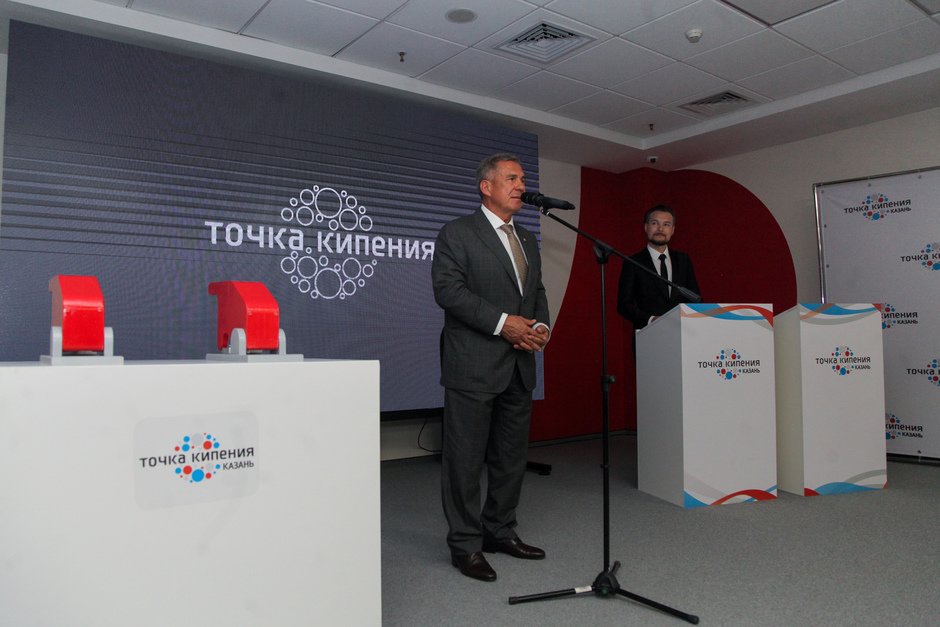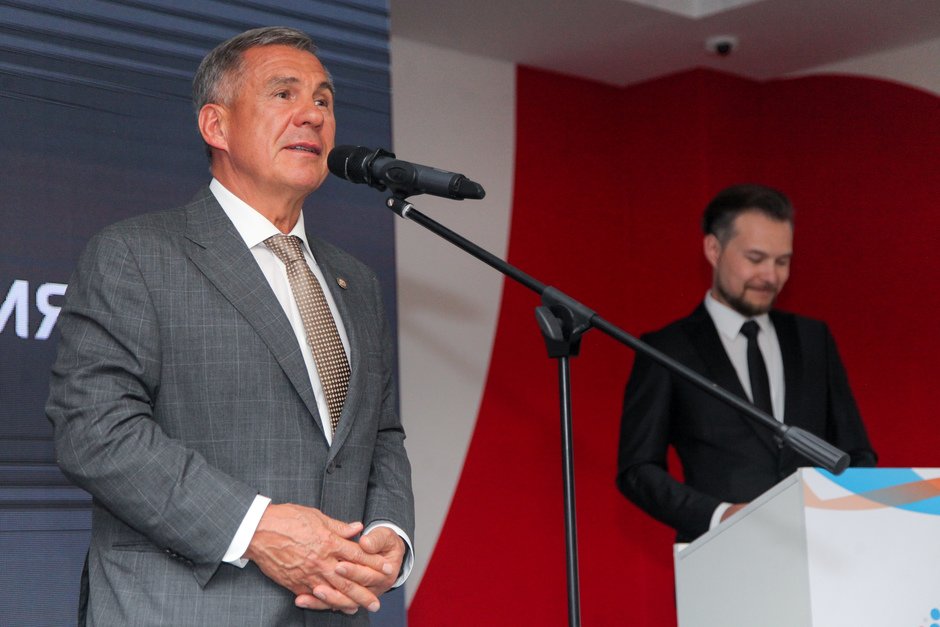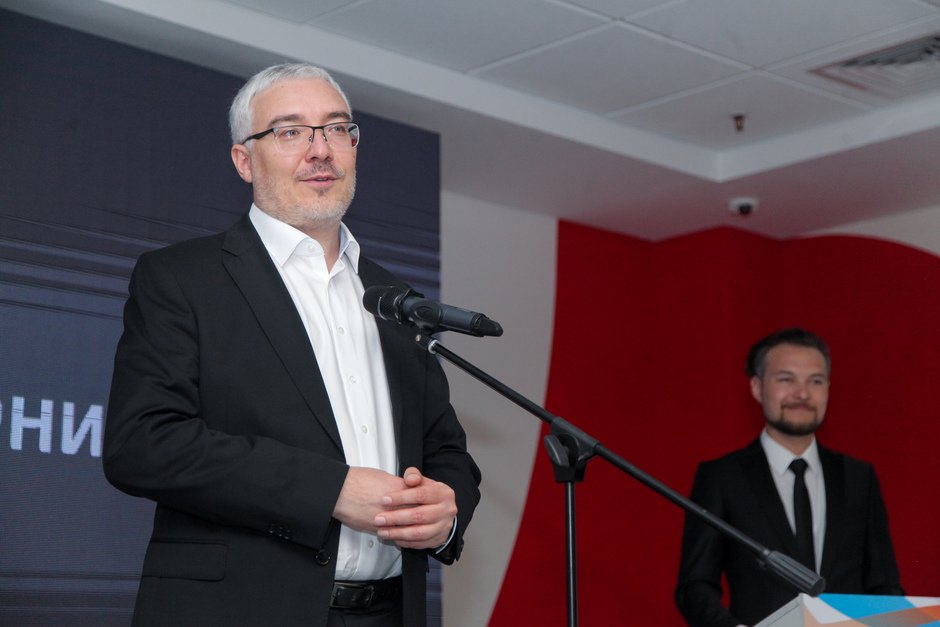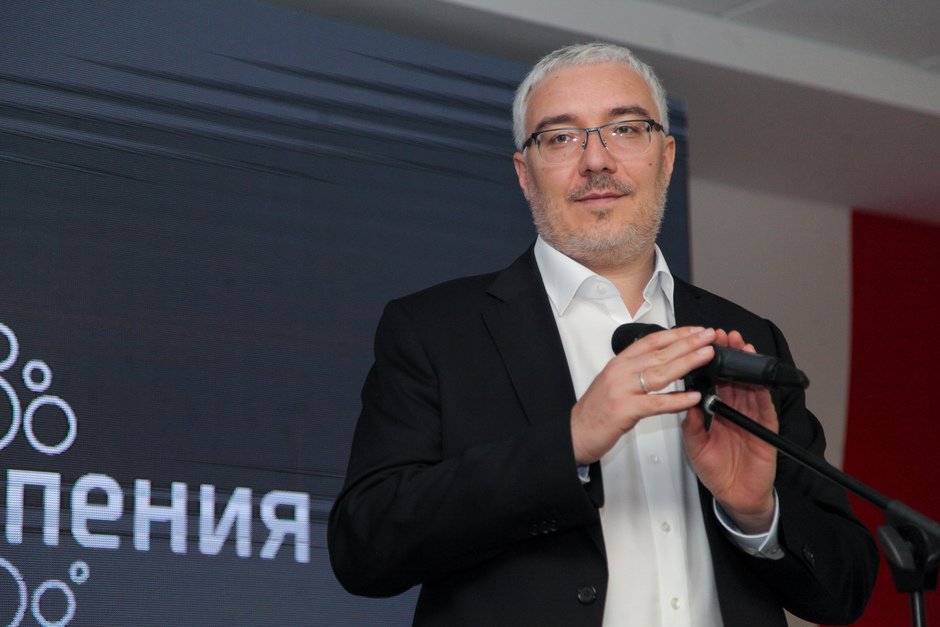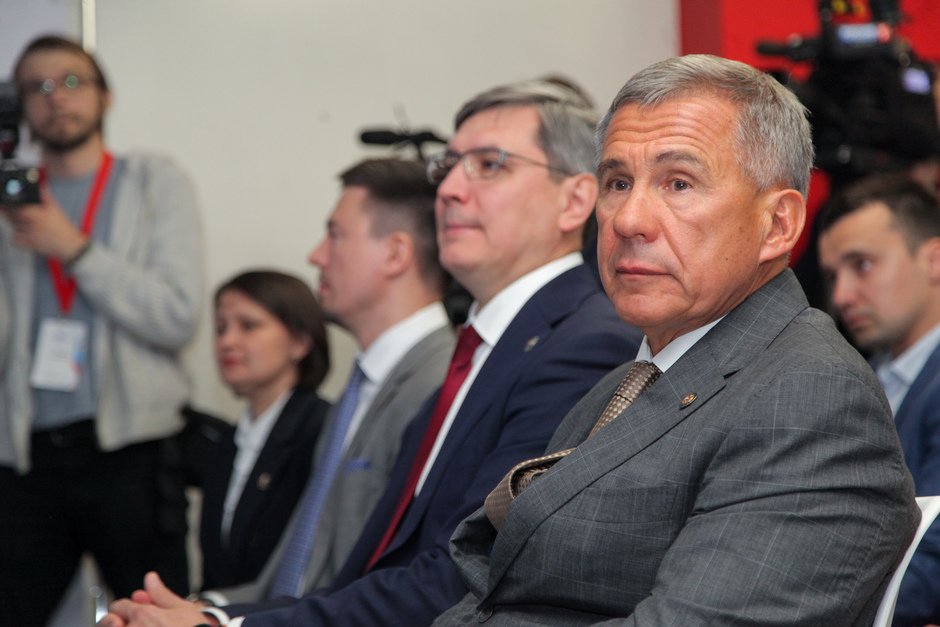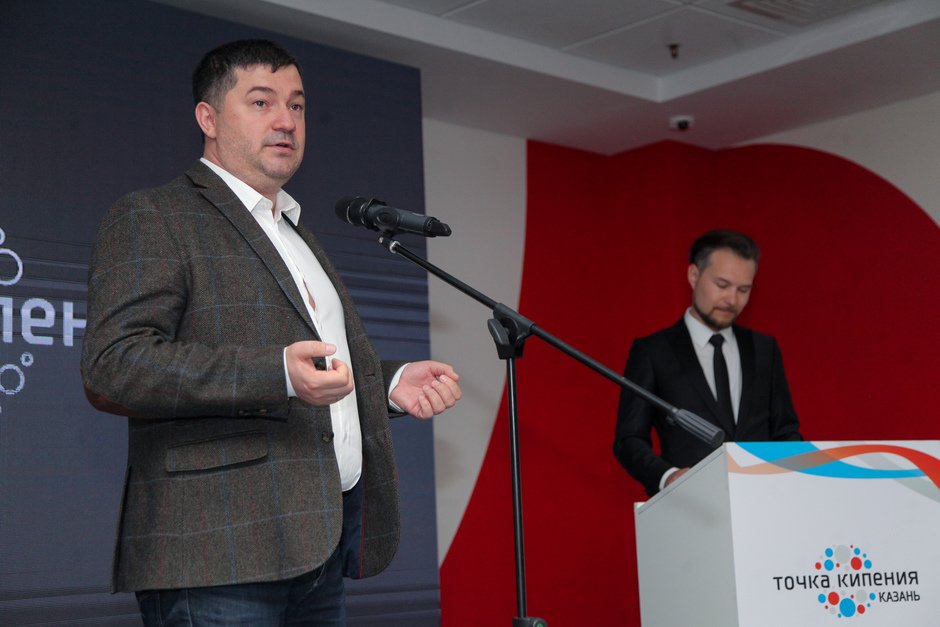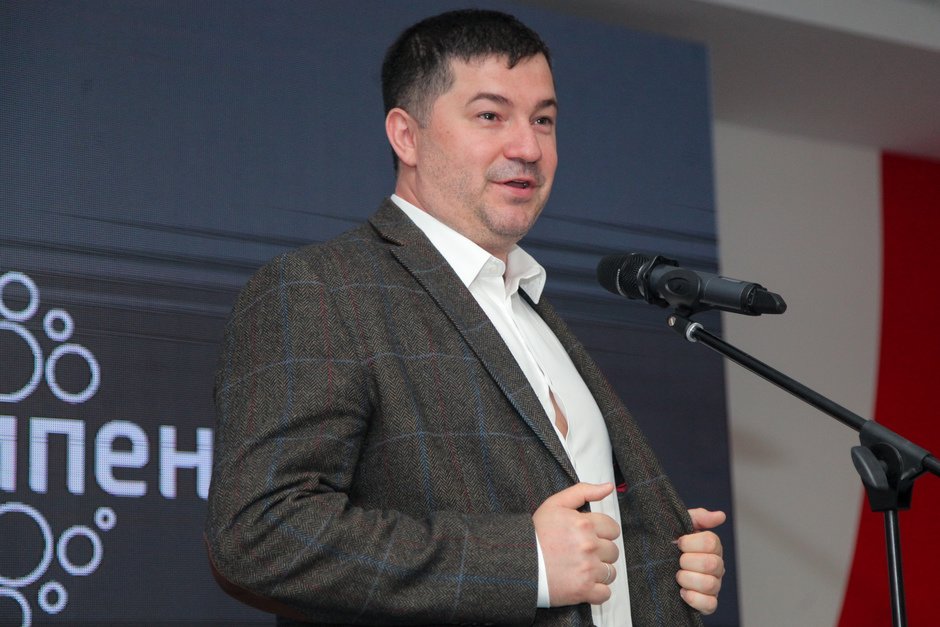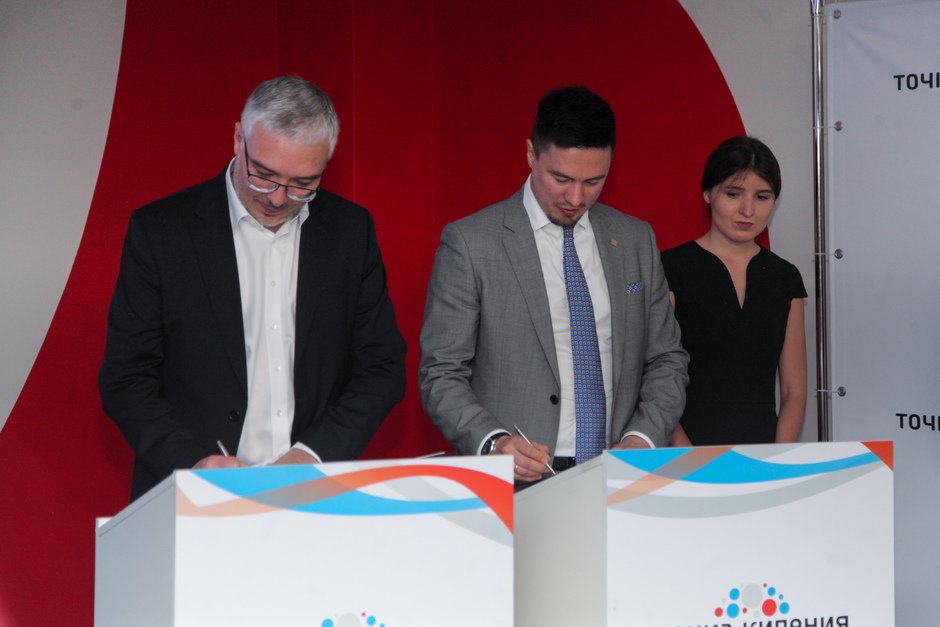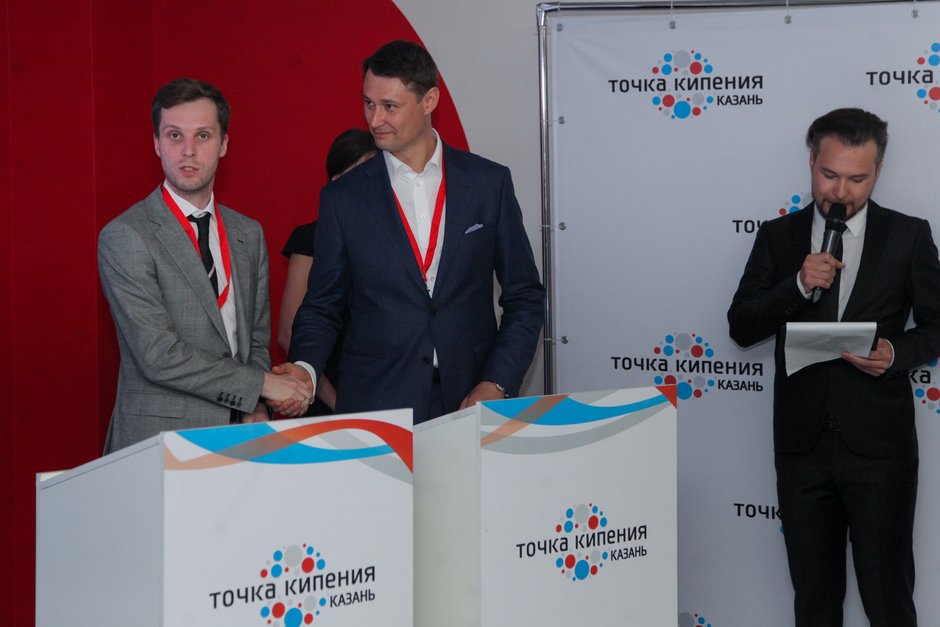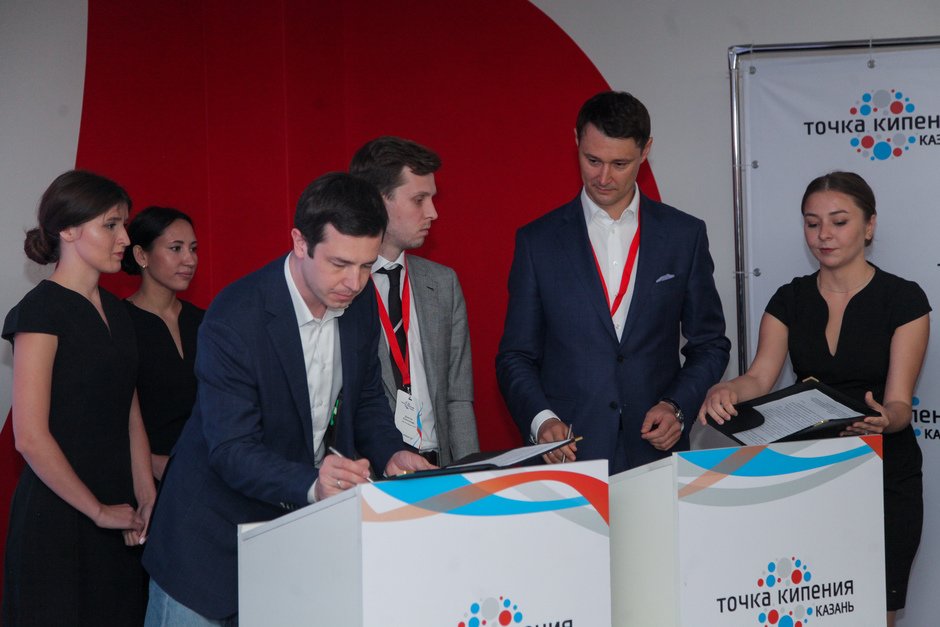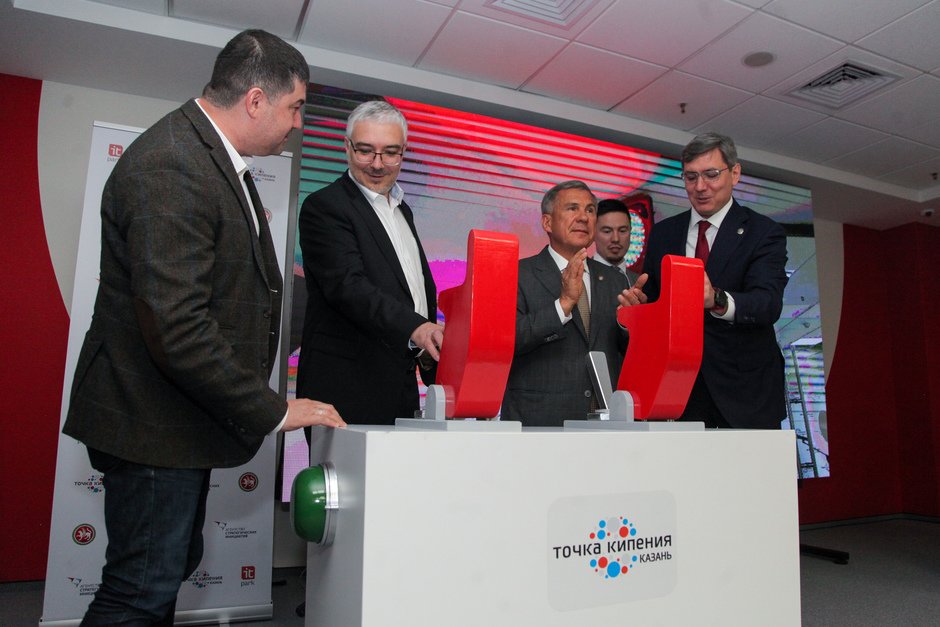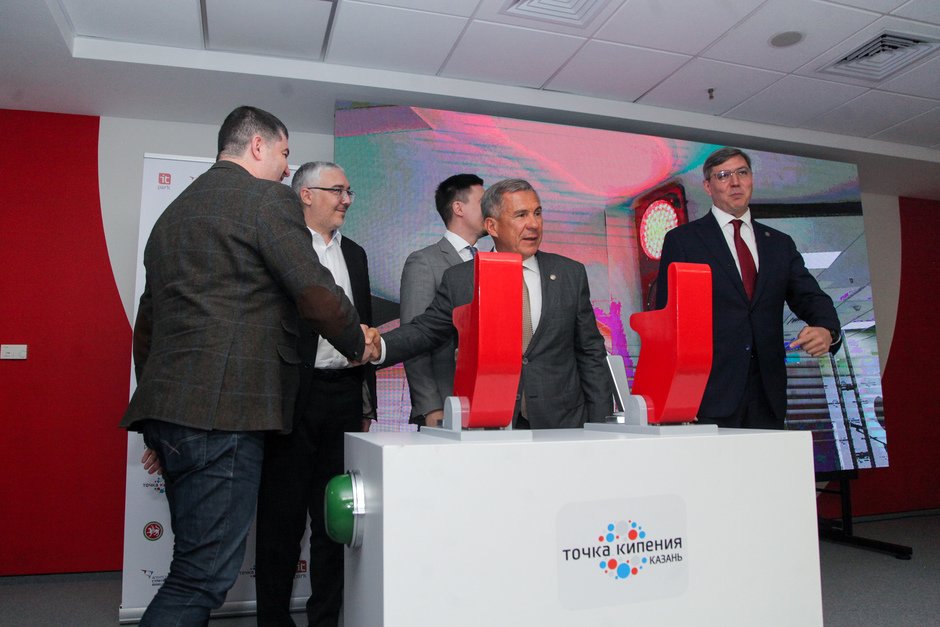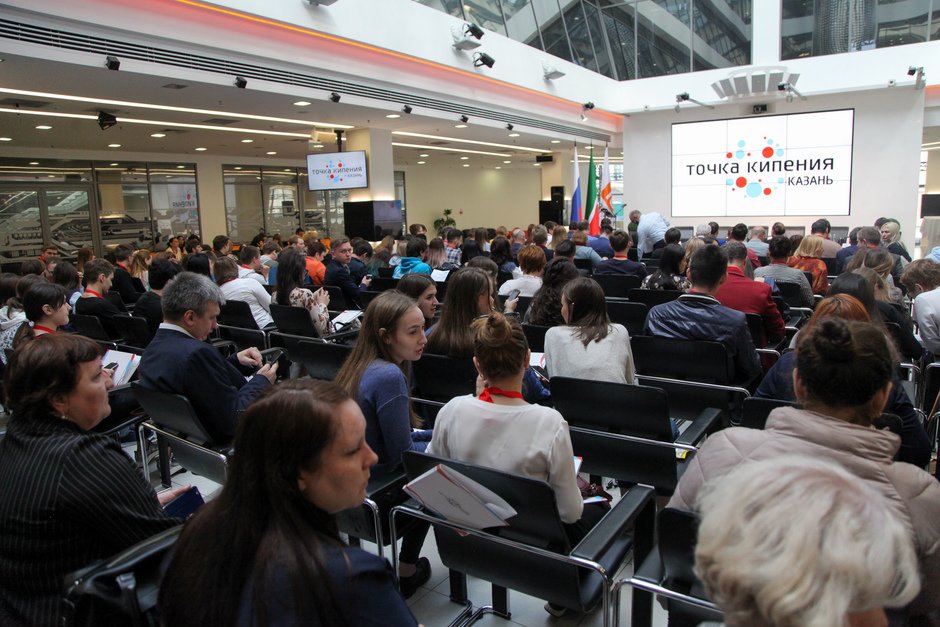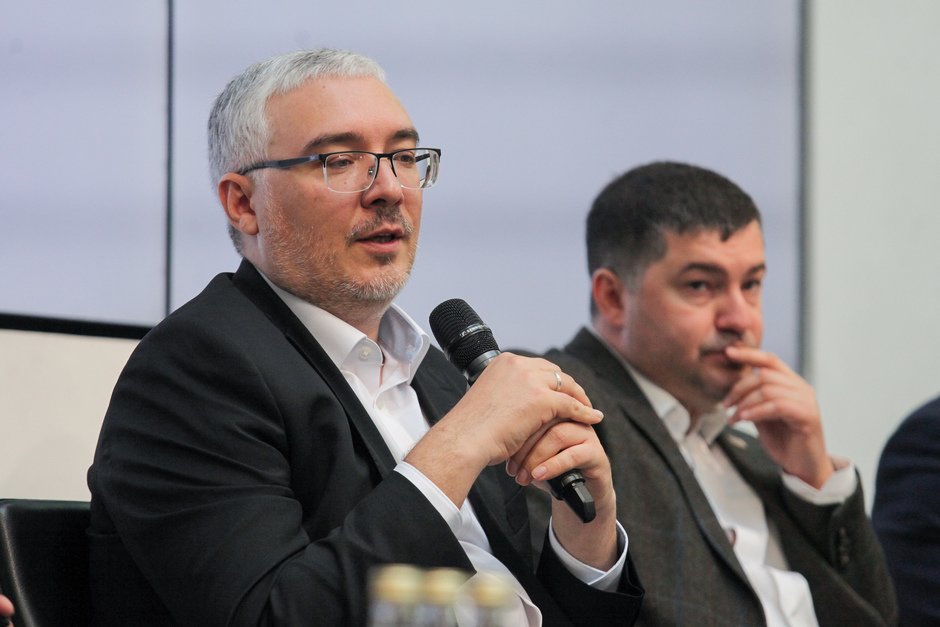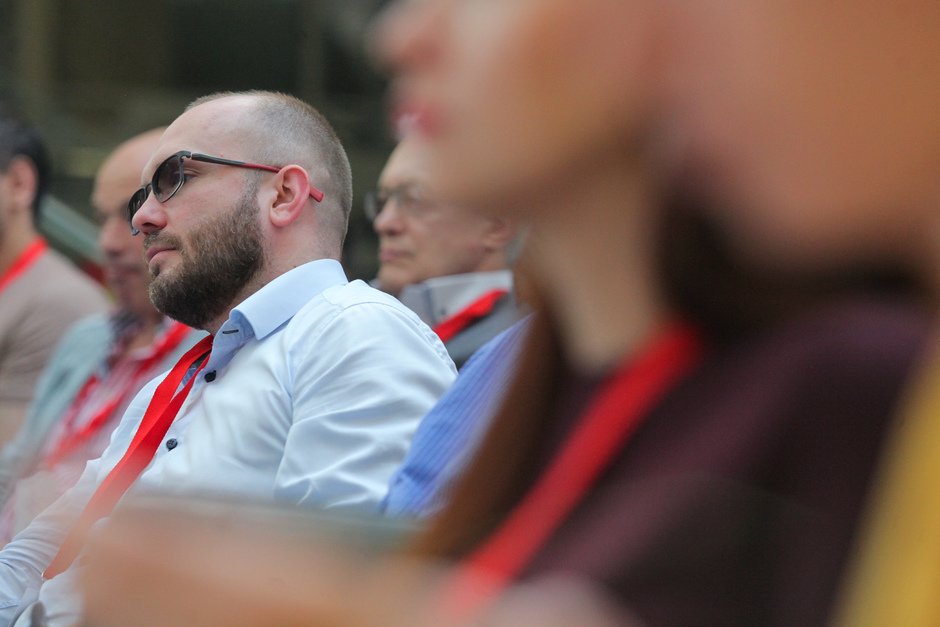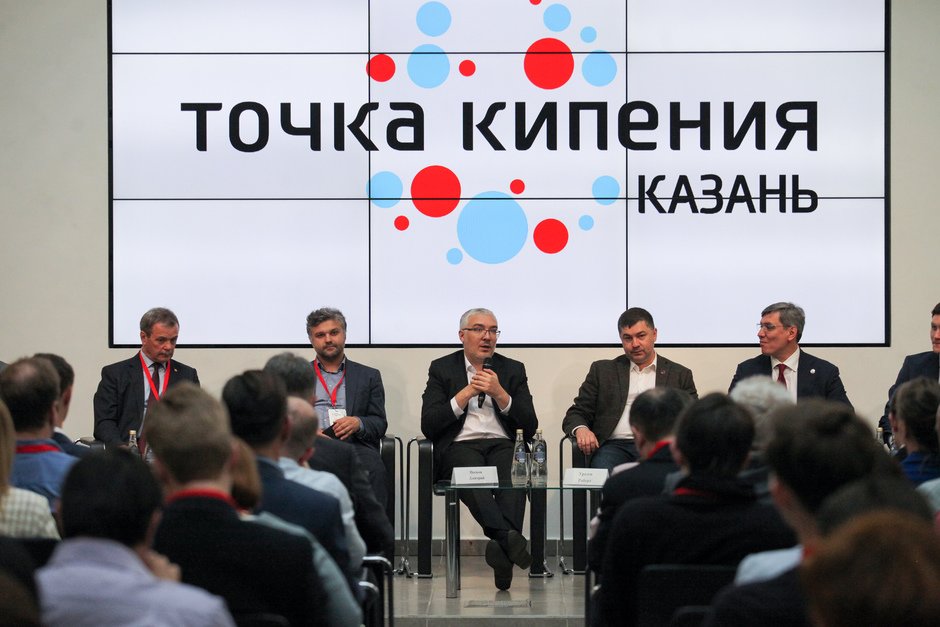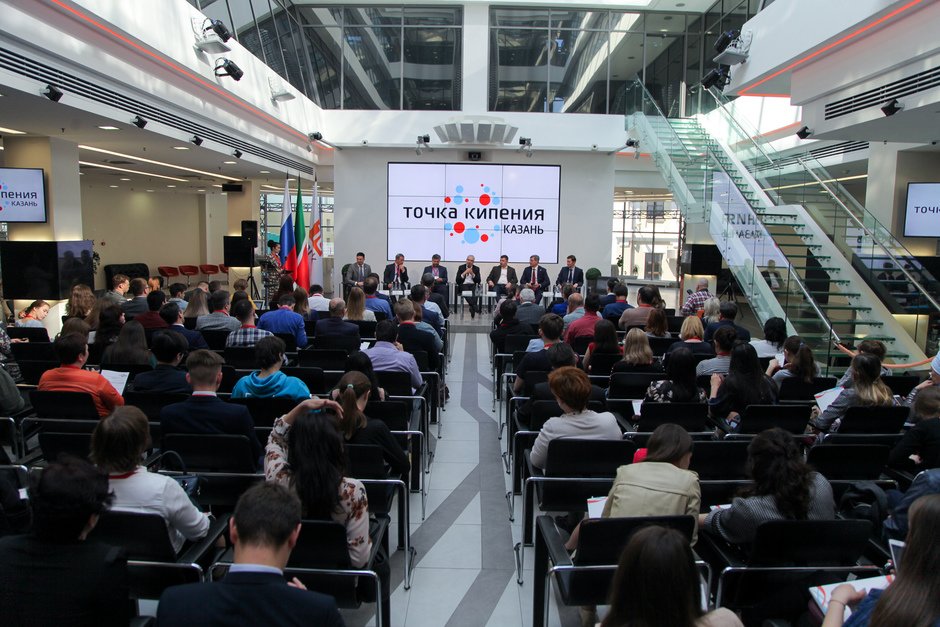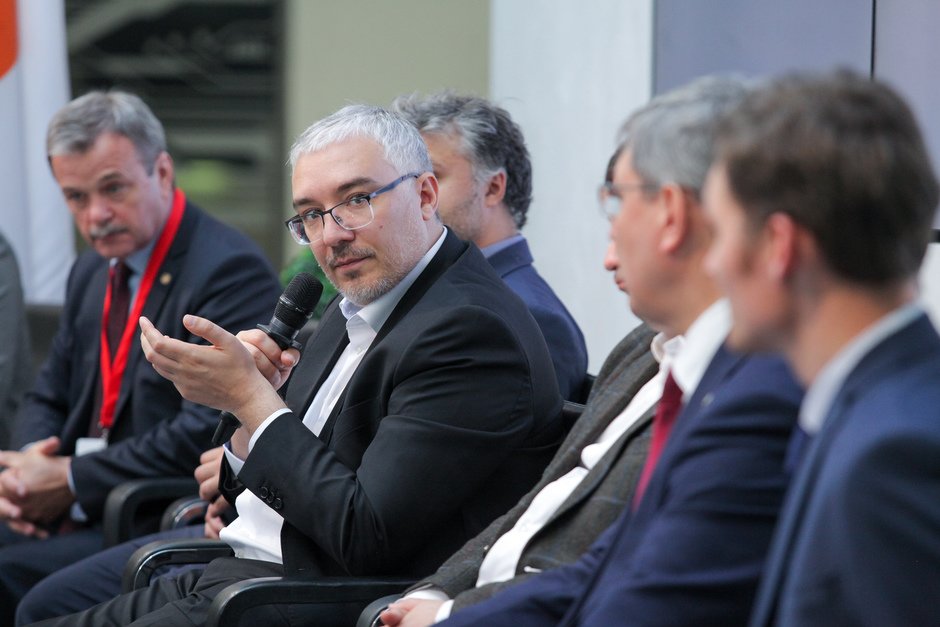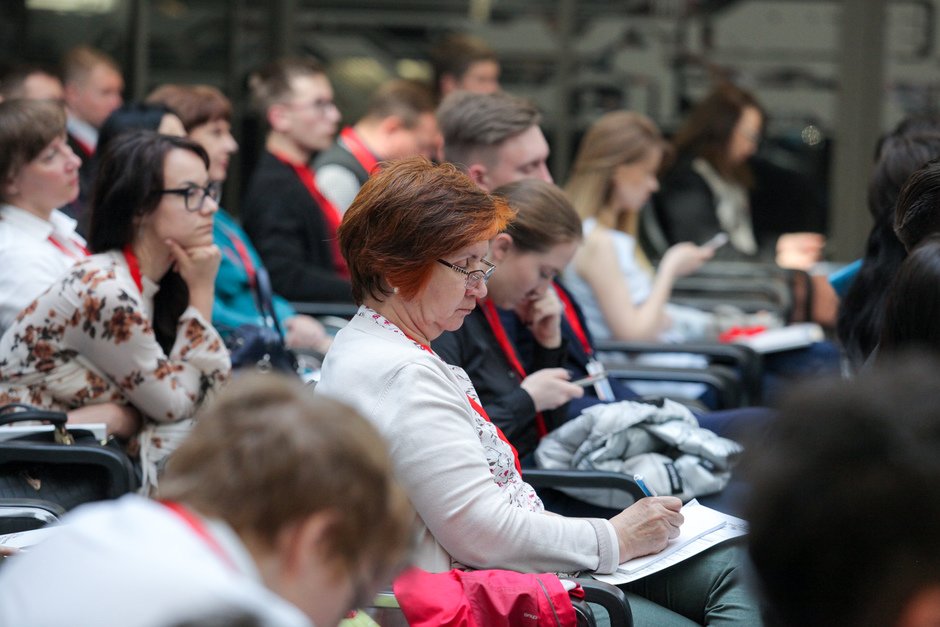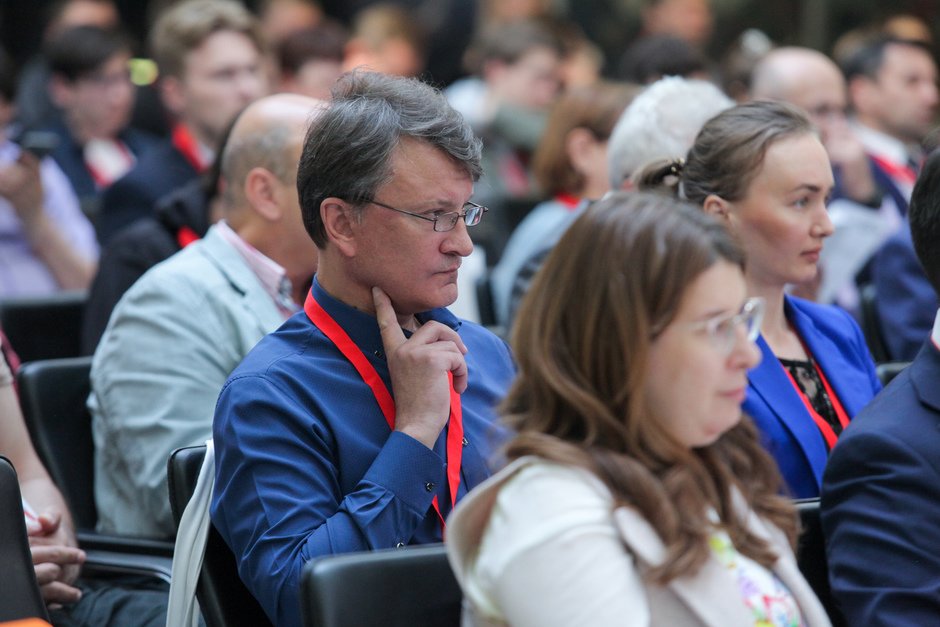“We are the 25th — this is our omission”: platform for interaction between businesses and government opens in IT Park
The 25th Boiling Point from the Agency for Strategic Initiatives, according to the organizers, is going to become a new tool for finding answers to the challenges of the digital age
The opening ceremony of the collective work space Boiling Point — Kazan (Tochka Kipeniya — Kazan) was held in IT Park, Kazan. There were not enough seats for all those wishing to attend the event: in the hall on the third floor, almost a third of the audience had to stand, including programming directors of the project and some journalists. This is despite that well before the beginning of the event standing at the entrance organizers denied entrance to visitors asking to watch the broadcast from the screens on the first floor. The details from the opening of the site, as well as the issues of technological backwardness and skilful copying of the competencies of the more developed countries, which the speakers discussed at the plenary session after — read in the material of Realnoe Vremya.
Non-resource export potential
The organizer of Boling Points is the Agency for Strategic Initiatives. The first Point was opened in autumn 2013 in Moscow. “Boiling Point is not only about IT, but it is also about all the areas that exist in Kazan and other regions,” Tatarstan Minister of Communications Roman Shaykhutdinov said at the presentation to President Rustam Minnikhanov.
As the organizers explained, Boiling Point in Kazan is going to unite entrepreneurs, students, scientists, active youth to create and promote innovative projects of Tatarstan. The main activities of the project — digital transformation, its task — the development of the non-resource export potential of the region.
“The project was completed in 3,5 weeks from start to finish — this is an unprecedentedly short time,” said director of IT Park Anton Grachev. “What Boiling Point is going to be engaged in, what agenda it has: three key areas — sustainable development, digital transformation and international cooperation.”
“The Agency for Strategic Initiatives each time shows which way to move. It's another thing that we are the 25th — I think this is our omission,” the president joked in his welcoming speech. “But sometimes, being behind, you can find yourself ahead of everyone because we have studied the experience of our colleagues, they have passed this way, and the platform where this project is implemented in Tatarstan involves two cities.”
According to Minnikhanov, all conditions will be created at the site — there will be an educational centre, a meeting centre for business, and in the future the movement is going to involve republican universities, “Dmitry Peskov said that 12 pieces [of university sites] were opened yesterday. I think — our leaders are here, they are hearing me — because we should have such structures everywhere,” he addressed the ministers, Irada Ayupova and Roman Shaykhutdinov.
Missing sovereignty
“For us, Tatarstan is the source of best practices, and there is no other city where we would encounter such phenomena as today, when you come to Kazan and do not know what to choose: you have WorldSkills, Innopolis is hosting СIPR conference, Boiling Point is opening in Kazan — this shows a high class of those communities, of those what is happening here,” special representative of the president of the Russian Federation on digital and technological development Dmitry Peskov began.
Peskov reminded: the world is changing very quickly. “While we are sitting carefree, the first world digital war has begun. IT is going to hit everyone so hard on all sides. <...> We are not very ready for it, the troops are not ready.” The power of the country should be protected by technological sovereignty, he added. The speaker touched upon the problem of sovereignty not for the first time: he had spoken about the dangers of borrowing technologies earlier in Innopolis at the CIPR conference. And not for the last time — Peskov involved the colleagues in a long discussion on this issue at the plenary after the launch ceremony.
Minnikhanov, Peskov, Shaykhutdinov and director of the technopark Anton Grachev took the stage to switch on the green signal of the traffic light, which symbolizes the idea of collective work space of Boiling Point. Minnikhanov pressed the button when the presenter suggested starting the countdown. “We have already pressed,” the president said. “The green signal led is not illuminated yet,” the presenter got a little confused and offered to push again — so the Boiling Point was opened.
A broken smartphone is the key challenge of the era
After the official opening, the speakers went to the plenary session on the challenges of the digital future — repeating the agenda of the conference held on the eve of the plenary session of CIPR. Grachev invited the special representative of the president of the Russian Federation to start the discussion on how the Point can help to rethink the existing technological processes.
In response, Peskov touched on the topic of dependence on technology, asking the audience to imagine that smartphones have turned into cobblestones. According to him, this previously abstract risk is now becoming quite specific, the probability of which increases in the next 10 years:
“In the coming 20 years, we expect chaos and sanctions, a wave of bankruptcies of a number of digital platforms, and we need to understand what our own we have. The reason: if you look at Uber documents, they work using the scale effect model: that is, they are unprofitable at every moment, but the business model is built so that if they capture the whole world they become profitable, the Fake it until you make it model. If the world market closes — it means that you will never reach the profitability indicator. If you look now at the investment programme of a number of companies, the risk of destruction of organizations is very serious — 100% or more.”
“We are now waiting for what China would respond,” the speaker added, reminding the situation he mentioned at the conference when Donald Trump forbade the American companies to use the products of the Chinese giant Huawei in the United States. Huawei has repeatedly been accused of collecting personal data of users, which were then transferred to the Chinese authorities, the press reports.
In response, China may ban exports to the US of the rare earth elements they have used to manufacture all smartphones. “What is Apple without the ability to produce smartphones?” Peskov chuckled. “We are waiting for a parade of digital sovereignty — the countries will strive to achieve technological and digital sovereignty. Now there is only one country in the world that believes that it has digital sovereignty — the United States. China has already thought that it had, it turned out that not really.”
“Besides, the US thinks that its sovereignty extends to all countries of the world,” Shaykhutdinov said. “Yes, both the Japanese and the Germans in exactly the same way are blocking Huawei — consistently law-abiding. Not law-abiding, but... How to say it. Obedient to masters. But the countries will need solutions that would allow them to gain digital sovereignty — like a digital border guard. Today they do not have such,” Peskov summarized.
Copying technologies — the first stage
Director General of Young Professionals Union Robert Urazov proposed to copy the technologies if they cannot create anything their own. “We have the pavilion of Future Skills, we’ve got our heads blown off, sorry, by the competence of the Rivers Engineering. Here's what: there is an object — we copied, improved, made. Whether it is bad — well, it is, of course. I want to say: it is our's, it's cool, even Prophetic Oleg consecrated it and so on — but, guys, sometimes it is necessary to learn from others. If someone does better than you, sorry, first learn, then improve,” he suggested.
The next point is the age limits. Urazov offered Shaykhutdinov to choose from two candidates for a job — a young Olympic athlete or an experienced teacher with 40 years of experience in cybersecurity: “Who will you take as a teacher?”— “The one who has 40 years of experience,” the minister said. “He knows the dialectic of technology development, and moreover, you know one of the main products of Microsoft — Microsoft Exchange. It is their basic service. The development bureau is only 20 people, and all of them are 60-65 years old.”
“Roman has messed everything up, that's ok. The question is not age, but a person's ability to start not from experience but from a newly emerging reality,” said Urazov. “Now, unfortunately, we have to live in such a way that we have to focus on the current world, on current events, be able to orient in it.”
Changing the education system
The biggest challenge for the technological breakthrough and elimination of technological backwardness of our country and many other countries in relation to the United States and China — is primarily the development of human capital and change the education system, said Roman Shaykhutdinov. “As well as of the education system — general school, primary school, high school. And the development of a large network of systems of vocational additional education — mainly additional, because for the period of 20-25 years, when there will be a generational change, we will have to retrain, not be afraid to change the field of activity.”
In parallel, there are many tasks — information security, technological sovereignty. This raises the question of preserving the personal data of Russian citizens, which is now stored in operational data not in our country, on the devices made not in our country, and the technical support and updating of these software products is not carried out here, he added. “It is easier to build competence inside than to buy. Buying is a one-time exercise, accumulating has a long-term effect that accumulates both knowledge and expertise,” he concluded.
